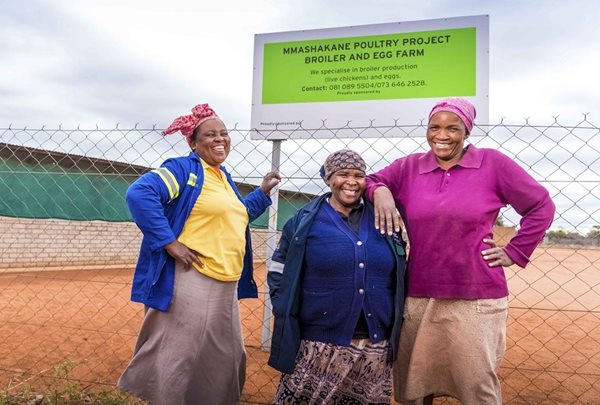
Top stories






More news

ESG & Sustainability
#AGES2026: How to back Africa's next-gen green and blue entrepreneurs















Logistics & Transport
#Budget2026: Road freight logistics and what it means for consumers


The partnership will focus on the functional and economic viability of small towns beyond the life of mines in these towns and importantly will support Phase 2 of SBI’s research into facts about small businesses so that interventions are evidence led.
“Through this relationship and our partnership in Impact Catalyst (more information below), Exxaro is demonstrating its support of South Africans with the courage to start and run small businesses and the people they employ. Once the economic devastation of Covid-19 is behind us, we will work together to create an environment in which it is possible to achieve the National Development Plan’s expectations of SMEs as the country’s foremost job creators,” said Mxolisi Mgojo, Exxaro’s CEO.
Bernard Swanepoel, a director at SBI, said: “We believe the work Exxaro is doing to ensure the sustainability of the mining communities where they operate is ground-breaking. It illustrates our vision of businesses, municipalities and residents working together to support the economic development of their towns. Over 90% of our 257 municipalities are dysfunctional and unable to secure clean audits for themselves, let alone deliver the services required to support local economies. This is not a sustainable situation.”
Exxaro has committed substantial funds towards the second phase of the SBI’s research. The research will entail a sweeping probe of various datasets and surveys as well as an examination of the characteristics and systemic challenges faced by SMEs in selected local areas, in real time. Ultimately, SBI will offer recommendations for specific policy interventions either by the end of the year, or early in 2021.
The first phase of the study examined the small and medium segment of firms in the South African economy through the lens of formal employment. “We deliberately wanted to know how many SMEs were creating jobs for people – the very businesses which need to continue growing along the continuum – and so stripped out the sole-proprietorships, freelancers and gig workers to look at the formal businesses providing formal employment,” said Swanepoel. “We also wanted to understand the formal sector better, since it is these businesses which will qualify best for government assistance, something that has been borne out in the assistance offered during the lockdown period.”
These same businesses – some 98.5% of firms in the formal economy – numbered at the time only 262 224, far below most estimates. So while SMEs make up most of the economy, Phase 1 of the study found they created only 28% of the jobs. Unlike the rest of the world, large businesses and government here (some 5735 enterprises) employ by far the most people, nearly 10 million. Today, those 3.9 million jobs linked to SMEs are under threat.
Mgojo said he also supported SBI’s call for big business and government to pay small businesses in their supply chains in under 30 days, saying Exxaro pays invoices within seven days of submission: “Now more than ever, we need to redouble our efforts to support livelihoods by helping SMEs breathe again through timeous payment of invoices for goods and services delivered. I urge all my counterparts to pay SMEs first. If all of us did that the need for economic relief by SMEs wouldn’t be as high and pressing as it is now. We see SMEs as being more important than just links in the supply chain, but as future big businesses.”